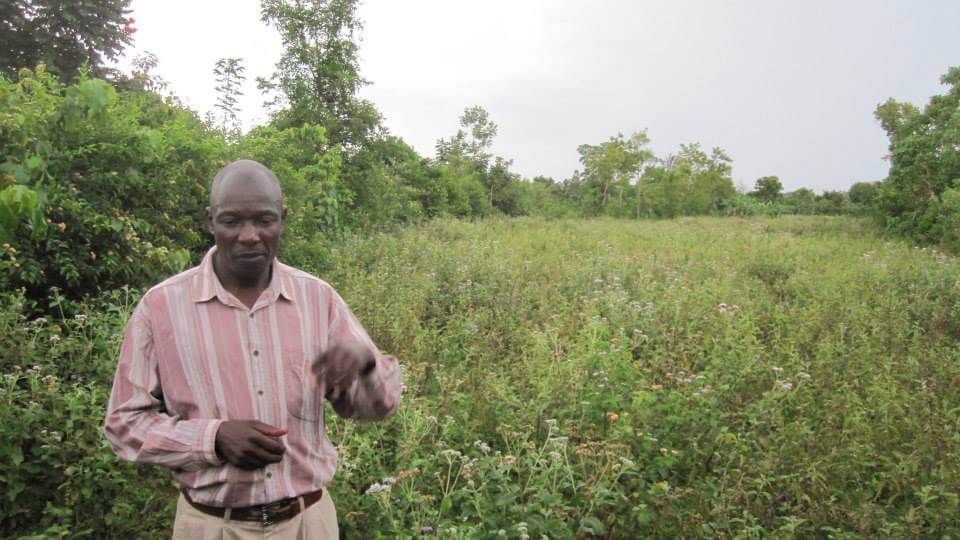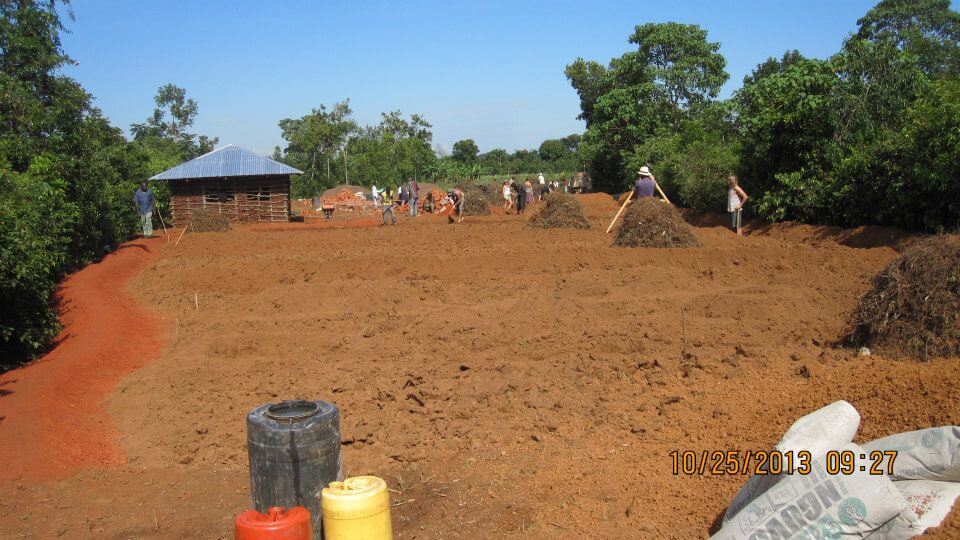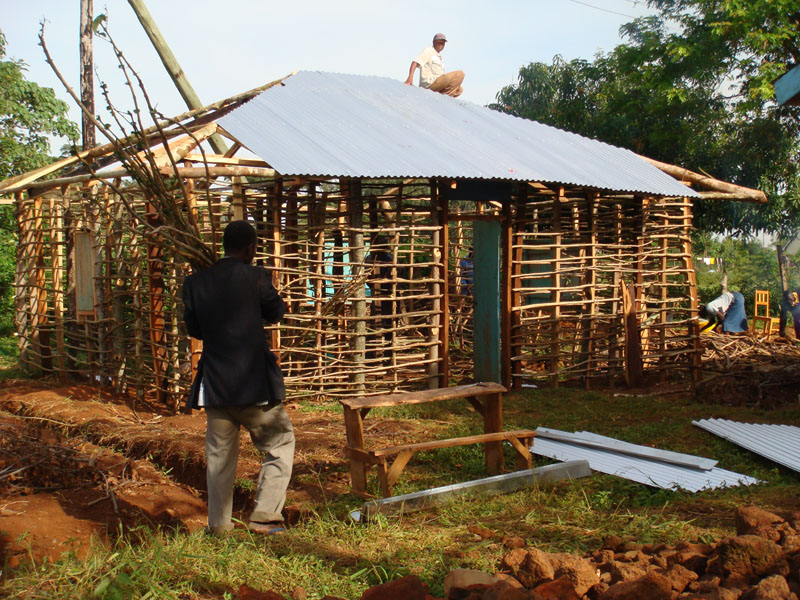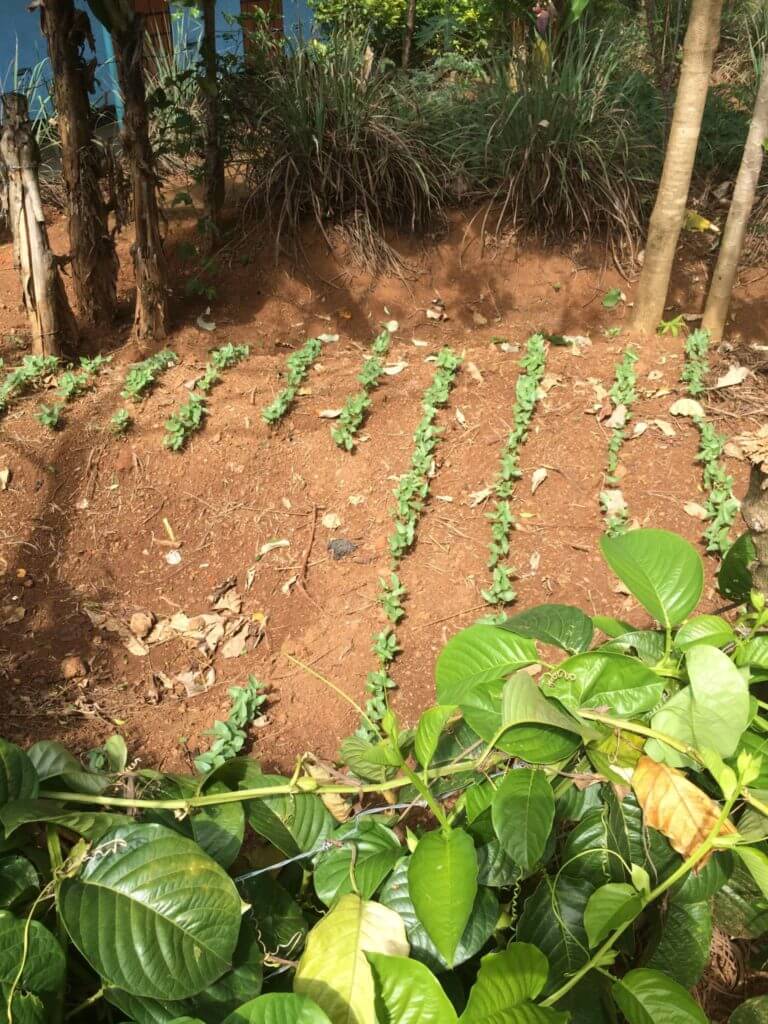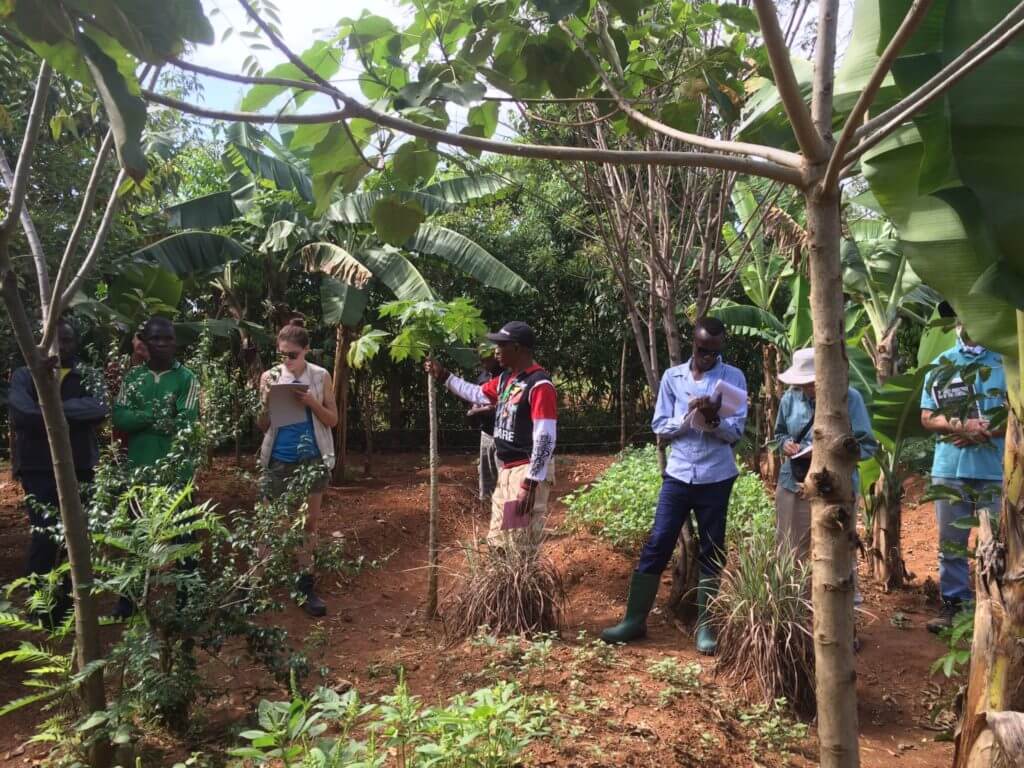Practical Permaculture Institute of Kenya
A permaculture training site in Kenya becomes a Garden of Eden and a hub of commerce.
Overview
In collaboration with Seven Ravens Permaculture Academy and Balitah Ravens Farm, All Points Land Design was contracted to teach for Seven Raven’s 8 week Permaculture Design Certificate. With 4 weeks education in Canada followed by 4 weeks in Kenya, I worked with students to conceive of the training centre’s design, then oversaw installation. Sponsored by Lift The Children Foundation, Lush Cosmetics and multiple donors, this project built upon Michael Nickel's (Seven Ravens Permaculture Academy) ongoing 25 years of work in Kenya working with farms and local primary schools. A local primary school teacher, Josephat Barasa (JB), worked on the ground to liaison with local contractors. In 18 days the students, JB, Michael Nickels and I produced a design and built the major infrastructure of the site: 30 person dorm, classroom, 3 ponds and a rainwater system, tree nursery, composting toilet, kitchen, bath house, fencing and plantings.
Challenges
The region faces extreme economic hardship, a high rate of HIV infection, and very limited access to amenities and utilities. Generally arid with heavy rains characteristic of a semi-monsoon climate, the land is highly eroded with low soil nutrient levels. Theft in the area and suspicion of outside help create social challenges. Finally, typical for the Old World tropics, termites are ubiquitous and can eat through a fencepost in 2 years while destroying wooden structures in the interim.
Opportunities
This project leveraged relationships developed over 5 years of collaborations between Seven Ravens Academy and Balitah Raven Farm’s Joseph Barasa. Their success working in local schools to grow food security had highlighted the remaining need for local, affordable food and a diversity of crops outside of the standard corn monoculture. On a personal level, people were looking for inspiration and greater empowerment through working collaboratively with outside sources.
Key Elements
- Rainwater system harvests all run-off from off major road and buildings, using compacted tranches as in-ground gutter system
- Silt traps within a 3-pond system provides the sole water source for banana production and field crops
- Bore-hole well (55 ft) used only for tree nursery, which produces 1-2k trees each year for income and planting
- Classroom and dorm hosts up to 30 people
- Local on-site kitchen uses appropriate indigenous technologies
- Tree nusery producing 5000 plus trees per year
- Showering facility
- Two large ponds producing up to 1k tilapia/year for consumption
- Installed first composting toilet in area - success produced local adoption of technology
- To combat termite challenges, living fence species were planted in concert with fence construction
- Local labour and resources were used as much as possible, paying slightly above local wages
Website
http://practicalpermaculturekenya.com
http://www.permaculture-eastafrica.com
Updates
2014-05
The site generates ample nutrients, fuel and timber, tree crops for indigenous foods, and income. Five days after construction, the first Permaculture Design Certificate for 31 people was held, with between 3-6 courses per annum since then. Within a year, it became income positive, allowing the school to expand by purchasing additional land. The site has spun off multiple businesses in the area, and even become a local shopping hub carrying produce, goods and services from town.
2016-11
The site is bountiful with food average 600 lbs of tipalia per year and dozens of Permaculture Design Courses focused on primary school teachers.
Videos
More projects
Topographical Site Survey – Homestead
A topographical survey produced by taking ground survey points, ground control points as w… Read more »
Water Plan and Animal Movement
This heritage poultry farm couple came to assess their water situation with many areas bei… Read more »
Cowichan Green Community Food Forest
A food forest appears on a steep slope between two parking lots.
El Pilar Farm Terraces and Water Management
Theft and hurricanes plague this semi-urban farm; the answer was a food de-fence.
Urban Food Production Hugelkultur
Local abundant food production right out front for an inner urban city lot on the coast.
City Park Food Forest Retrofit
A retrofit design of a city-run dog park into a food forest orchard.

